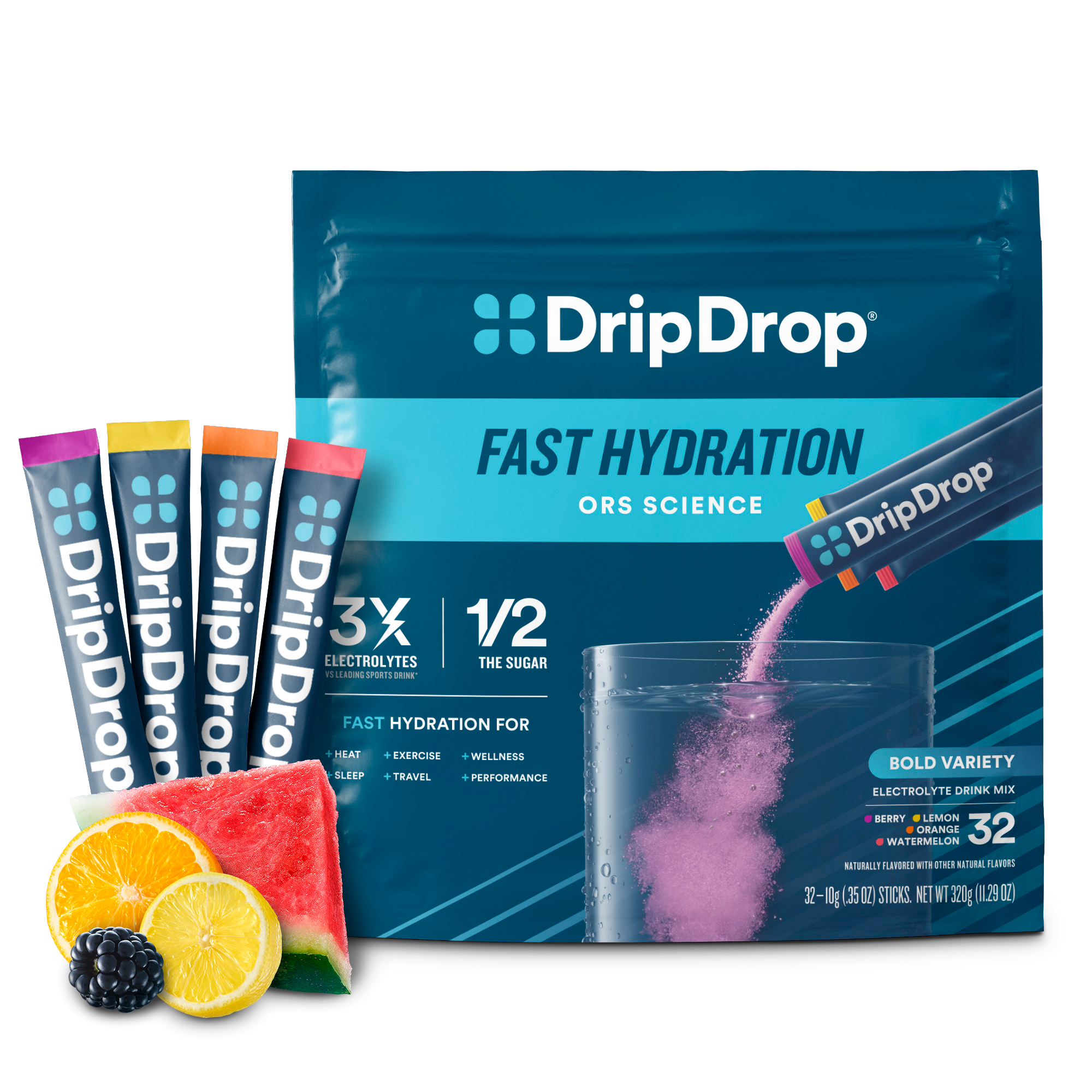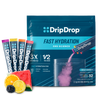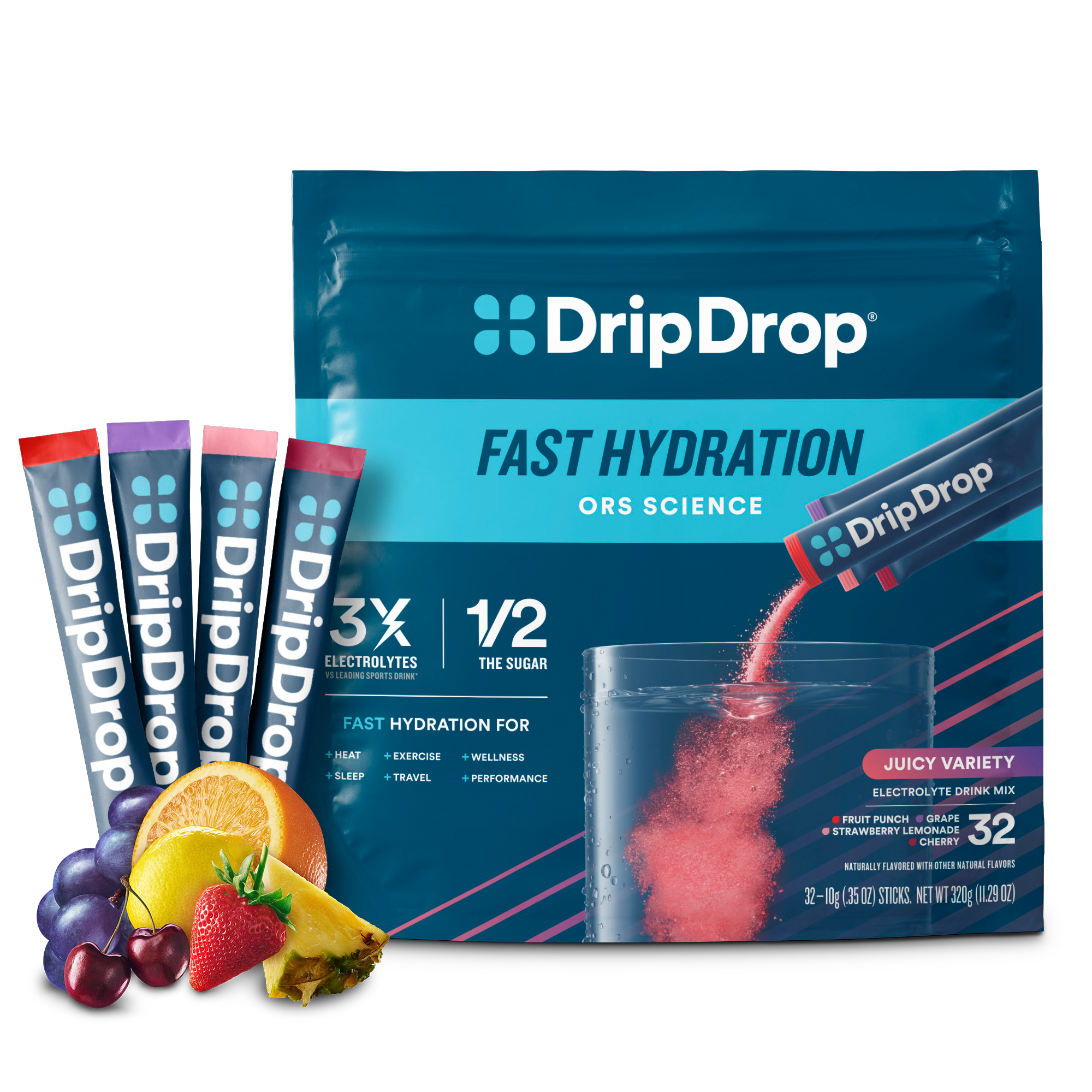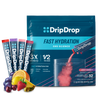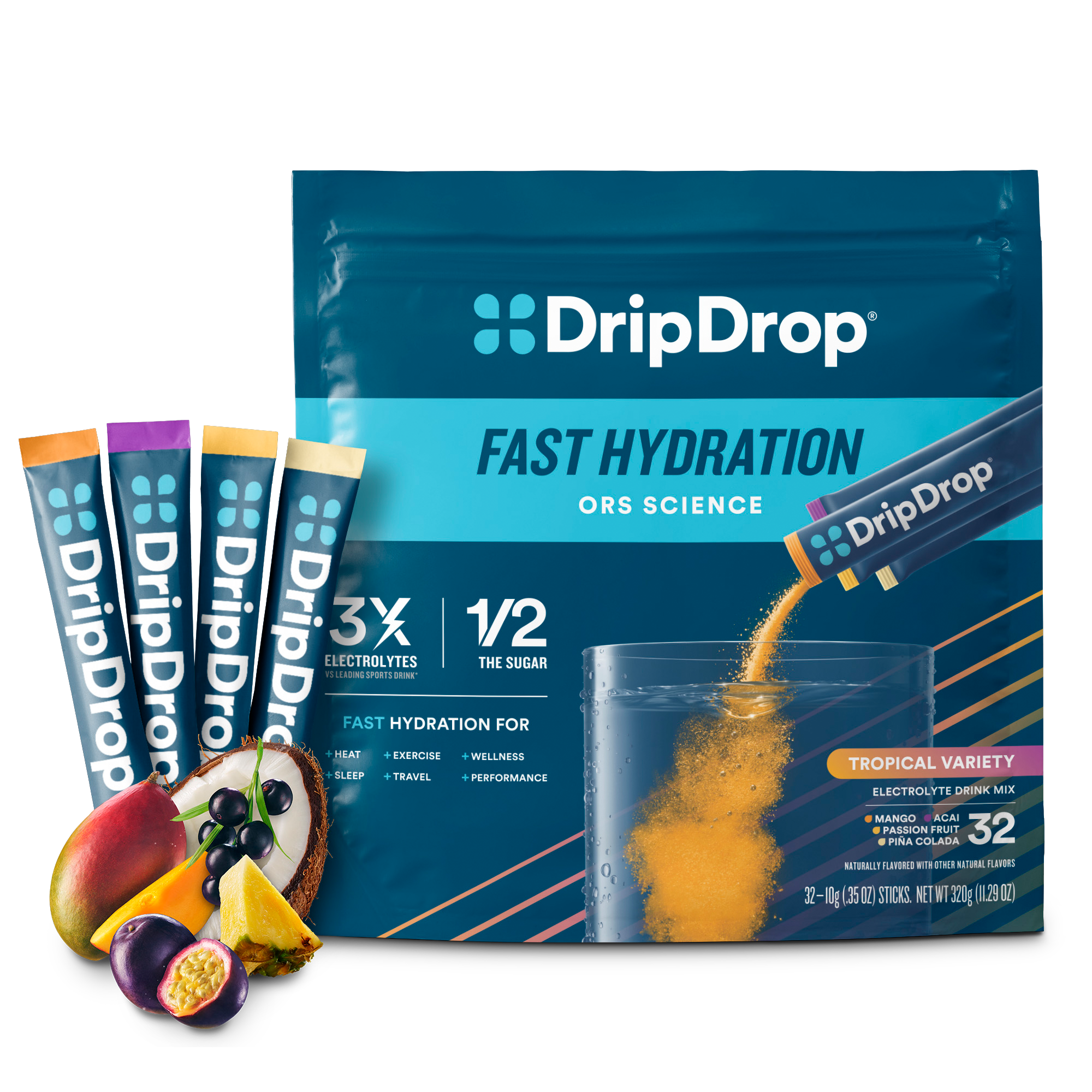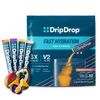It's happened to everyone: You’re sound asleep and suddenly you feel it. A sharp pain shoots up your leg, rendering your muscle immovable. The pain from muscle cramps, though often short, can be debilitating. Not only does it disturb your sleep, but sudden muscle cramps put you at risk for more severe injuries if they occur during physical activities.
Learning about muscle cramps causes and how to stop cramps cam help you avoid pain and more serious injuries. We've compiled this article to help you understand the cause, how to avoid the pain, and the connection between dehydration and muscle cramps.
Common Causes of Muscle Cramps
Understanding the causes behind muscle cramps can help you make certain changes in your lifestyle and take precautionary steps to avoid the pain. Here are some of the most common reasons you might experience muscle cramps.
Dehydration
One of the top reasons you might experience muscle cramps, particularly the kind that strike in the middle of the night or during a workout, is dehydration. Cramps can occur from not drinking enough fluids, which can also lead to an electrolyte imbalance. Though dehydration leg cramps are common, they can occur in other places in the body.
Dehydration occurs when your body has lost more fluids than you’re taking in. The loss of electrolytes can cause these painful muscle cramps.
You can become dehydrated when you:
-
Don’t drink enough fluids
-
Don’t replenish your minerals, causing an electrolyte imbalance
-
Sweat excessively
-
Experience vomiting, fevers, or diarrhea
Dehydration can range from mild to severe. However, even mild cases of dehydration can affect your daily activities.
To avoid dehydration, it’s important to make sure you’re intaking enough water AND electrolytes on a daily basis. Carrying a reusable water bottle with you can help remind you to sip throughout the day. Electrolyte mix DripDrop is a great source of electrolytes that you can add to your water to help overcome mild to moderate signs of dehydration and boost your electrolytes.
Other causes of muscle cramps:
-
Overexertion: Pushing your muscles to the point of exhaustion or fatigue can contribute to muscle cramps.
-
Electrolyte imbalance and nutritional deficiencies
-
Inactivity: Long periods of inactivity or immobility can predispose individuals to muscle cramps.
-
Underlying medical conditions: Certain medical conditions like diabetes, thyroid disorders, and kidney disease can make individuals more prone to muscle cramps.
For most individuals without a medical condition, the common cause of muscle cramps is dehydration.
It's important to note that if you're experiencing severe, persistent, or recurrent muscle cramps, it is recommended to consult with a healthcare professional for proper evaluation and guidance.
Common signs of dehydration include muscle cramps, headaches, and extreme thirst. You may also feel fatigued, lightheaded, and dizzy. Most people experience dehydration leg cramps in muscles such as the hamstring, calf muscle, and quadriceps.
Dehydration can range from mild to severe. However, even mild cases of dehydration can affect your daily activities.
The Link Between Dehydration and Muscle Cramps
Your body’s organs rely on fluids to function, including your muscles.
If you’ve experienced a painful muscle cramp, you can think of it as your body saying, “I’m thirsty!”
Without enough fluids, your body starts to prioritize where it needs its remaining fluids most. This means, your body begins to send fluids to your most vital organs while others that are less vital to survival, such as muscles, lose those fluids. Because of the reduced blood supply, your muscles cramp and spasm.
Though water is one of the most essential things for our survival, it doesn’t contain everything your body needs to properly function. Vital electrolytes like calcium, magnesium, and potassium have important roles in regulating bodily functions, which is why electrolyte imbalances are a major cause of muscle cramps.
How to Relieve Muscle Cramps
Once you’ve identified the cause of your muscle cramps, you’ll be able to implement the best way to relieve pain and avoid cramps again in the future.
If you have a medical condition that can cause muscle cramps, it is best to seek medical advice from your healthcare provider. A doctor can help you create a treatment plan using home remedies and medications.
To relieve muscle cramps:
-
Try gently stretching your calves and massaging the muscle to help it relax and rid you of the pain.
-
Use a warm towel, heating pad, or take a warm bath to relax tense muscles and relieve cramps. Alternatively, applying ice or cold compresses to the cramping muscle may also provide pain relief.
-
Stay hydrated. Ensuring that you're drinking enough fluids, especially water, can help prevent muscle cramps caused by dehydration. Adding electrolyte mix like DripDrop to your water can help replenish your electrolytes. It’s doctor-developed formula is designed to provide a precise balance of glucose and electrolytes, helping your body to relieve dehydration and reduce your risk of experiencing muscle cramps.
-
Consuming foods rich in electrolytes like potassium, magnesium, and calcium may provide some relief.
-
Ibuprofen can help reduce severe pain and inflammation.
-
Walking or performing light exercises can help increase blood circulation.
-
Some people find relief from muscle cramps through alternative therapies such as acupuncture, yoga, or stretching exercises like yoga or Pilates.
It's important to remember that if you frequently experience severe or recurrent muscle cramps, it's advisable to consult with a healthcare professional for evaluation and guidance.
Fight Dehydration Cramps With DripDrop
If you suffer from dehydration leg cramps and other muscle cramps due to dehydration, you can remedy the situation by addressing your hydration status. Remember, it’s not just about fluids. You also need to ensure your body has the right balance of electrolytes.
DripDrop is a fast, effective, and great-tasting remedy. It is formulated with vitamins like zinc, potassium, and magnesium, which are essential to support your overall health. These vitamins help your body retain water, support muscle movement, and transport nutrients. They also help promote immune health.
Try a multi-flavor pouch of DripDrop for fast dehydration relief, or learn how you save up to 25% on every purchase when you subscribe.



